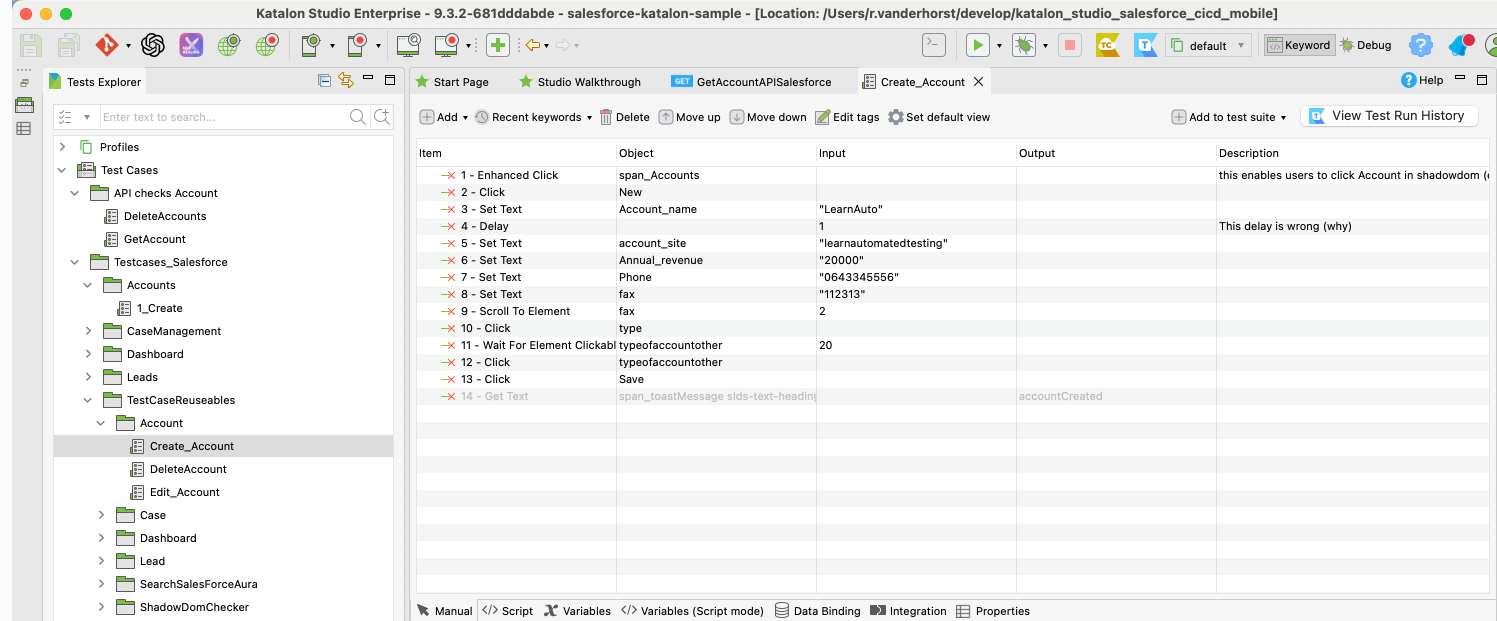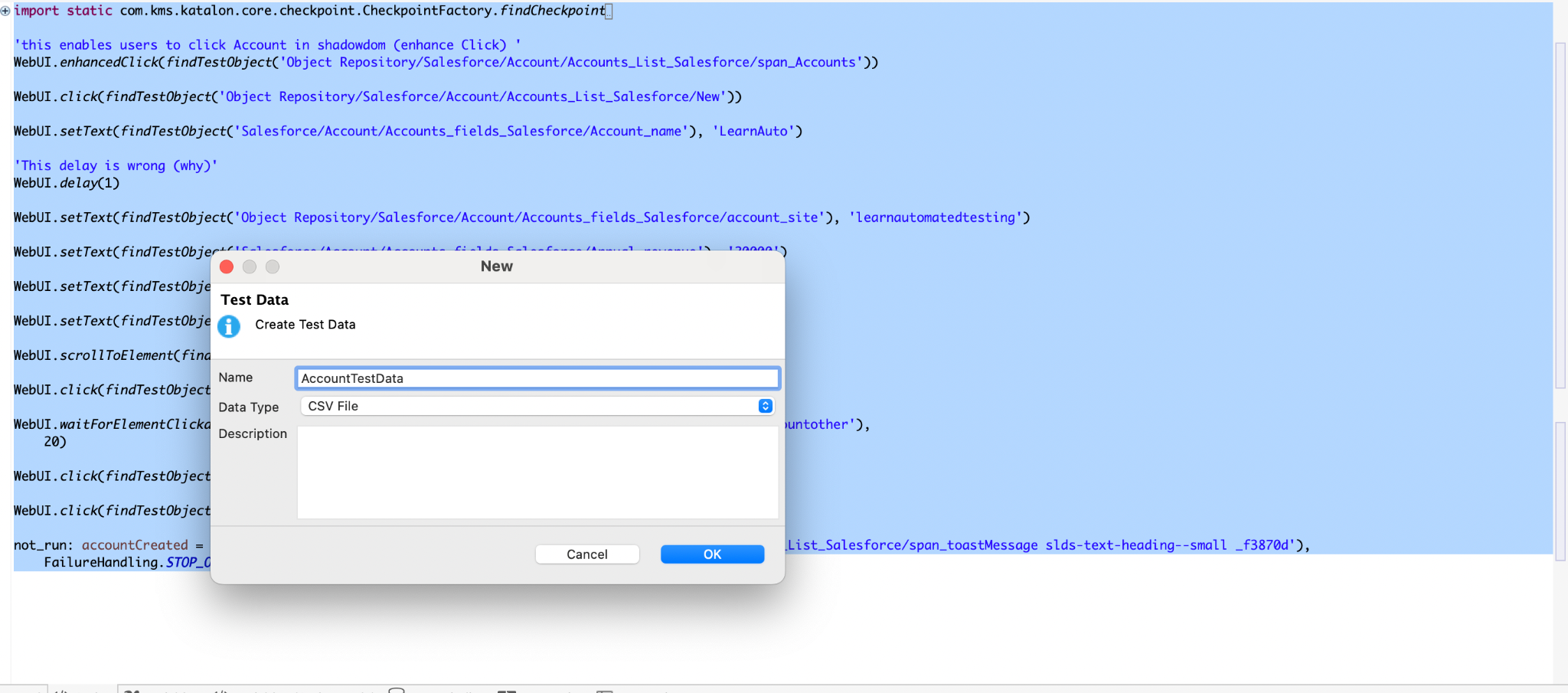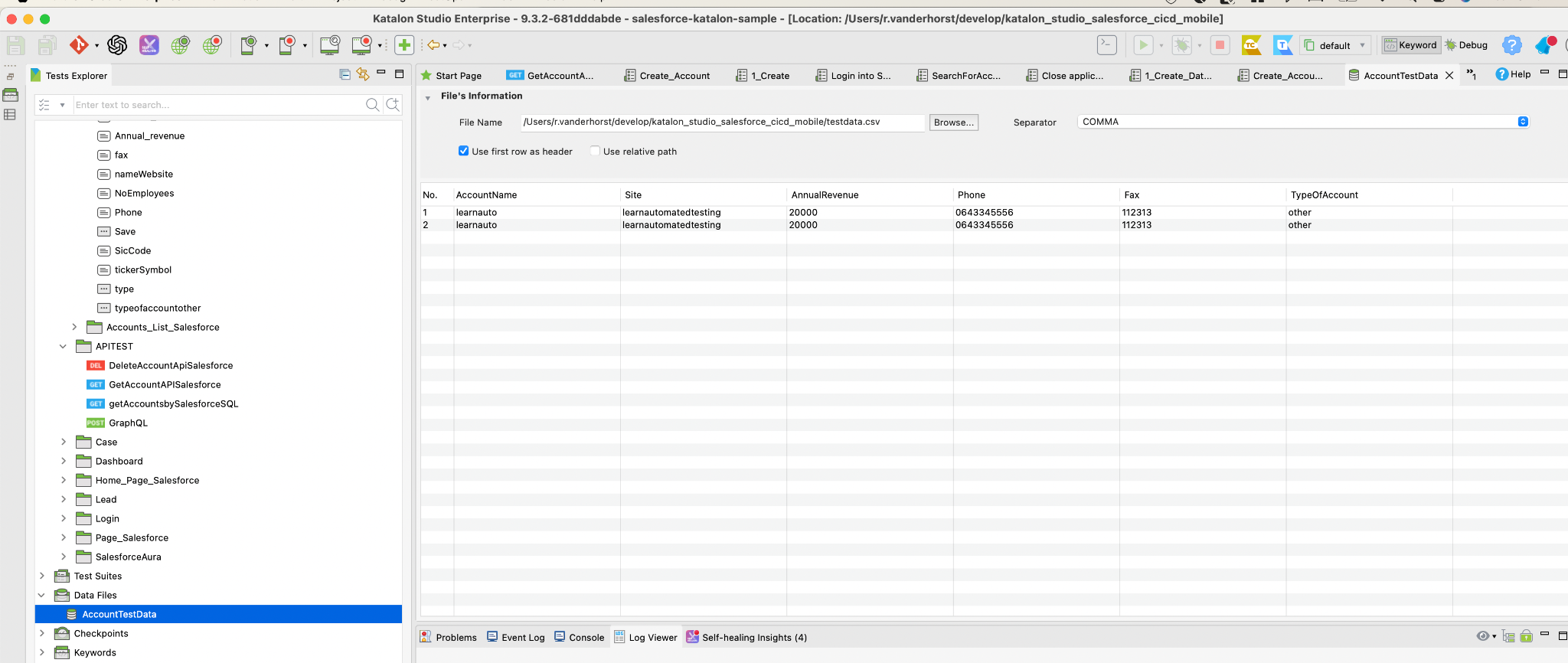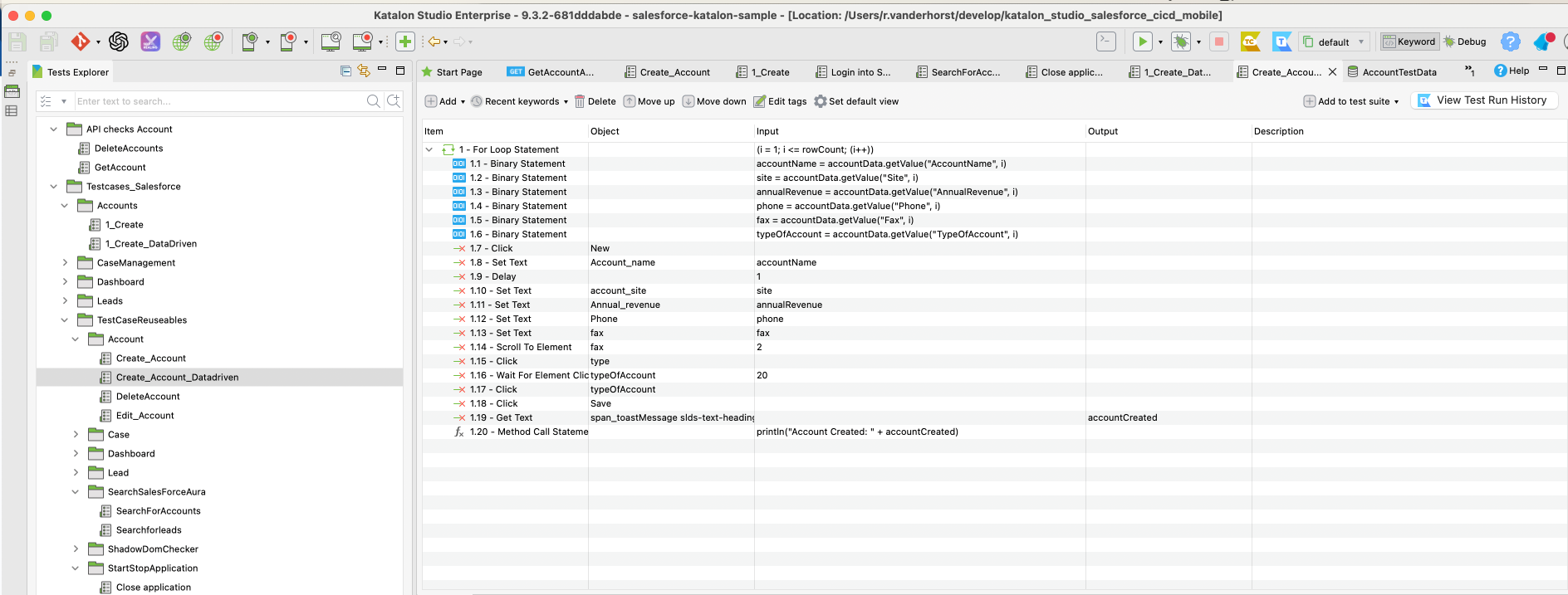Module 3: Creating and managing tests in Katalon Studio
Creating and managing tests in Katalon Studio
Data driven testing
forData-driven testing (DDT) is a testing methodology in which test data is stored in a table or spreadsheet format, allowing testers to execute a series of tests using various data values without writing multiple test scripts for each data set. This approach is particularly useful in environments like Salesforce and Katalon Studio for several reasons:
In Salesforce Testing
Salesforce is a highly customizable platform with complex business logic, workflows, and user interactions that often require testing with multiple data sets to ensure comprehensive coverage.
- Variety of Use Cases: Salesforce applications are tailored to meet specific business needs which can vary widely from one organization to another. DDT allows testing teams to cover a broad range of scenarios by simply varying the input and validation data.
- Complex Business Logic: Salesforce applications often involve complex validation rules, workflows, and process builders. DDT helps ensure that all these elements work as expected across different scenarios and data conditions.
- Efficiency and Scalability: By separating test logic from test data, DDT in Salesforce allows for more efficient test creation and maintenance. As business requirements evolve, adding new test scenarios can often be as simple as adding new rows of data to your test data source.
- Improved Test Coverage and Quality: DDT can lead to improved test coverage as it makes it easier to test multiple scenarios. This thorough testing helps improve the overall quality and reliability of the Salesforce application. For DDT we will be going the learn the datamodel of Salesforce to add and remove standard data via the various apis supporting the datamodel
A very cool feature is that you can use the queries as parameters in salesforce SOQL like e.g.
https://bsure-digitalbv-dev-ed.develop.my.salesforce.com/services/data/v60.0/query/?q=Select Name from Account
In Katalon Studio
Katalon Studio supports data-driven testing natively, making it a powerful tool for testing web, mobile, and API applications, including those built on Salesforce.
- Versatile Data Sources: Katalon Studio supports various data sources for DDT, including Excel files, databases, and CSV files. This versatility makes it easy to integrate test data from different origins and formats.
- Easy Integration with Salesforce: When testing Salesforce applications, Katalon Studio can easily consume test data to execute tests that interact with Salesforce’s UI elements, API endpoints, or both. This ensures that Salesforce customizations work as expected with different data sets.
- Automation Efficiency: Katalon Studio’s DDT capabilities allow testers to write a single test script that can be executed multiple times with different data sets. This reduces the effort and time needed for test script maintenance and increases test coverage.
- Error Identification and Debugging: Running tests with various data sets can help identify and debug errors under different conditions, improving the robustness of the application being tested.
Why Use Data-Driven Testing in Salesforce and Katalon
- Reduce Manual Effort: Manually testing complex applications like Salesforce with multiple data sets is time-consuming and prone to human error. DDT automates this process, significantly reducing the manual effort required.
- Ensure Data Integrity: In Salesforce, ensuring data integrity across various objects and relationships is crucial. DDT helps validate that business processes work correctly for all expected variations of data.
- Enhance Test Coverage: DDT enables the execution of more tests with less effort, enhancing the coverage and ensuring that the application can handle various real-world data scenarios.
- Adapt to Changes Quickly: Salesforce environments often undergo frequent changes and updates. DDT in Katalon Studio allows teams to quickly adjust test data and scenarios without needing to rewrite test scripts, facilitating continuous testing For this course we will now only focus on datadriven testing within katalon in the api testing part we will come back to covering the datadriven aspects of salesforce and combine this with a delete api to remove accounts.
Challenge, we are going make this hardcoded script datadriven via a csv
To make your script data-driven, you’ll need to modify it to use data from an external source, such as a CSV file, that Katalon Studio can read. This approach allows you to easily modify the test data without changing the script itself. Here’s a simplified example of how to refactor your script to be data-driven with Katalon Studio:
- Prepare Your Test Data File: Create a CSV file with the necessary columns for your test data, such as AccountName, Site, AnnualRevenue, Phone, Fax, and TypeOfAccount. Populate it with the data rows you want to test.
- Import Your Test Data in Katalon Studio:
- In Katalon Studio, go to File > New > Test Data.
- Select CSV and browse to your CSV file.
- Name your Test Data object (e.g., AccountTestData).
Modify Your Script to Use Test Data:
Replace the hard-coded values in your script with references to the data from your Test
It should now look like this.
Challenge:
Please run the script with the datadriven setup by running on the play button in the top corner.please fork and or download the template repo https://github.com/learn-automated-testing/Katalon_Salesforce_Course. Or just create your own repo and run this repo just as I showed.





